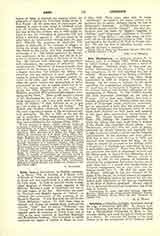

Arni Thorlaksson, an Icelandic bishop, b. in Iceland, 1237; d. at Bergen, 1297. While a deacon, he visited Norway, in 1262, and became a friend of King Magnus. Ordained priest, he was soon appointed administrator of the Diocese of Holar, and was conspicuous for his zeal regarding the law of celibacy. He was assistant of the Bishop of Skalholt, in 1267, and succeeded him in that office, being consecrated in 1269 at Nidaros (Trondhjem) in Norway. On his return to Iceland, he set about organizing the ecclesiastical administration. Since the regulation of the hierarchy in Norway, in 1152, the Iceland bishops had become suffragans of the metropolitan of Nidaros. In 1264 Iceland became still more dependent politically on the king of Norway. Up to that time Iceland had been a republic, governed by the Althing, which was composed of forty-eight chiefs, ninety-six councillors, and an announcer of laws, who was president. At the time Christianity was introduced many of these chiefs built churches on their lands and assumed at the same time ecclesiastical administration of them. The Church became identified with the State. The Althing, the legislative assembly in which the bishops had seats, made laws in matters of the church and controlled church affairs. Arni Thorlaksson, confronted with this state of things, protected the church interests, and especially had to fight for the investiture of priests and the temporal administration of the churches and their effects. With this in view, he visited Norway in 1273, and obtained some concessions from the king. On his return to Iceland, he proposed to the Althing (1275) a Kristenret, i.e. Christian law, with which his name is particularly associated. Some time after this the jus patronatus (the right of patronage) revived, and the bishop made an appeal to the arbitration of the king and. of the archbishop. Having arrived in Norway, in 1297, for this purpose, he succeeded in obtaining the compromise that where laymen owned more than half of a church they should retain its temporal management, but in every other case the bishops should have it. He died the same year at Bergen. Although he had not obtained all the rights of the Church, he at least secured its organization and uniformity, and, as far as civil law was concerned, such observance of the laws as dependency on the kings of Norway permitted. History regards him as the most influential and important man of his time in Iceland.
E. A. WANG

